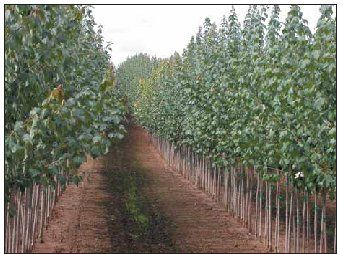
Publisher:
Bonnie King
CONTACT:
Newsroom@Salem-news.com
Advertising:
Adsales@Salem-news.com

~Truth~
~Justice~
~Peace~
TJP
Feb-12-2008 11:59

 TweetFollow @OregonNews
TweetFollow @OregonNews
Bipartisanship Needed for Farm Bill to Blossom
By Senator Gordon Smith Special to Salem-News.comThis Farm Bill still has many hurdles to clear.
 Salem-News.com |
(WASHINGTON, D.C.) - Like many crops, the 2008 Farm Bill grows slow and steady. This legislation still has a few obstacles to overcome, but many members are working to find common ground on the bill for a much needed upgrade for America’s farmers. Let me tell you why the new Farm Bill is good for Oregon.
Farmers and ranchers face daunting regulations, heavily subsidized foreign competition, and lax environmental standards abroad. Foreign countries often ignore food safety requirements that this nation values.
We frequently see news reports of tainted imported food products being recalled. This reminds us that our food supply is one of the most important national security issues we face. Food grown in the United States is safe and affordable. Look no further than the stocked shelves of any local supermarket.
To put the American farmer on equal footing, the Farm Bill invests $286 billion in agriculture programs. The Senate’s version, which won the support of 79 U.S. Senators, includes a record $2 billion for specialty crops or fruit and vegetable programs, almost five times more than current law. $270 million in mandatory money for a Specialty Crop Block Grants will go to states like Oregon and a livestock title will be added for the first time in Farm Bill history.
The Conservation Security Program, which I created in 2002 with Sen. Tom Harkin (D-IA), is expanded to enroll over 13.2 million acres a year through 2012. The program is set to reward farmers for making environmentally sound decisions with their land.
Energy security and affordability is also a major concern. The cost of oil has risen to almost $100 a barrel, gasoline to over $3 a gallon. To address America’s energy deficit, the Farm Bill develops biofuels and cellulosic ethanol programs to help increase our nation’s energy security with home-grown fuels.
Someone will have to grow those fuels, and Oregon has great potential to meet this growing demand. These challenges are great. Yet so are the opportunities.
For example, just this month it was announced that Boardman will be the home of the Northwest's first cellulosic ethanol plant. The plant will use excess materials from mills, farms and forests, all from Oregon, to produce clean, renewable energy to fuel our cars and heat our homes.
During the drafting of the Farm Bill, Senator Wyden and I utilized our positions on the Senate Finance Committee to help create a new $5 billion trust fund for agriculture disaster relief.
The new program will be more predictable and reliable for Oregon farmers and ranchers. It will include incentives for younger generations to stay involved or to get involved in farming, two new tax credits for taxpayers who take voluntary measures to aid in the recovery of species that are either listed as 'threatened' or 'endangered' under the Endangered Species Act.
In addition, it includes various energy tax incentives for cellulosic ethanol production and other rural energy research, and a shortened depreciation period on farm equipment – from the current seven years to five.
This Farm Bill still has many hurdles to clear. The Senate and House Agriculture Committees must reconcile the differences in the two bills and present it to each legislative body for a final vote – all before March 15th when the current bill expires.
I am hopeful that the remainder of this process will be more about finding common ground than partisan political fighting. We must work to finish this farm bill soon so that the American consumer can continue to have access to affordable, safe and a bountiful supply of food.
More importantly, we must find the common ground so that America’s farmers and ranchers can continue to have faith that their government is more about being their partner than about trying to put them out of business.
Articles for February 11, 2008 | Articles for February 12, 2008 | Articles for February 13, 2008

Salem-News.com:

googlec507860f6901db00.html


Terms of Service | Privacy Policy
All comments and messages are approved by people and self promotional links or unacceptable comments are denied.
[Return to Top]
©2026 Salem-News.com. All opinions expressed in this article are those of the author and do not necessarily reflect those of Salem-News.com.